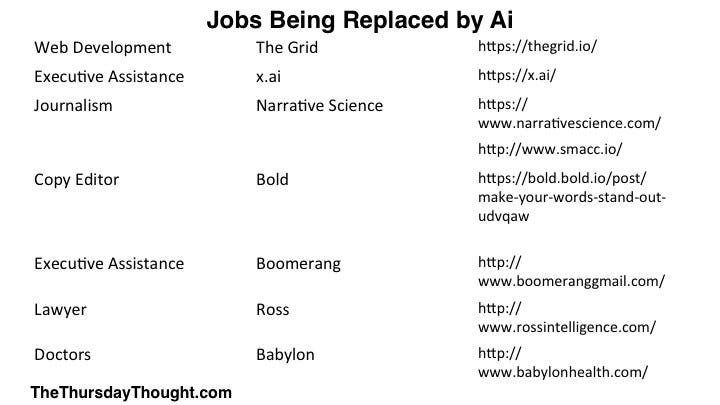
All this Ai Stuff, Robots, Economic Singularity, none of it will happen in our lifetime, nor our children’s lifetime, right?
Us humans have always underestimated how long it takes for technological adoption and breakthrough to happen.
Artificial Intelligence has had a few false starts along it’s evolution, but now has an intense focus combined with huge funding injections. Ai is of it’s time and is growing at an exponential rate.
It can be difficult to put exponential growth in context. The following analogy helps greatly.
Exponential Growth

Imagine you are in Wembley stadium sitting in the highest seat. On the pitch below you see a match official drop a single drop of water on the pitch. After one minute she drops two more drops on the pitch. A further minute later she doubles that and drops four. Each minute thereafter she doubles the amount of drops. That’s called exponential growth. In effect, the water drops double every minute. Now, imagine the stadium was sealed so the water could not escape.
If the official continues to double the number of drops every minute, how long do you think it would take to submerge Wembley?
From the very first drop, to completely filling the stadium it would take a mere 49 minutes!
Following is the really important question…
How long before do you think it would take before the water reaches the first seats on the pitch and covers the heads of those sitting there?
This part takes 45 of the 49 minutes.
Importantly, this means that by the time the first people start to realise there is a problem, the rest of the 90,000 people have only got 4 minutes to escape.
This is why we see companies, who are not proactive with real innovation strategies and indeed digital transformation programmes ultimately fail. To them it seems like this happened overnight. One day they are on the gravyai train, the next they are looking for a new job, the world is littered with such companies, Kodak, Blockbuster and Nokia all spring to mind.
Couple exponential growth with Moore’s Law, which is the observation made in 1965 by co-founder of Intel Gordon Moore. Moore observed that the number of transistors per square inch on integrated circuits had doubled every year since the integrated circuit was invented. Moore predicted that this trend would continue for the foreseeable future. Continue it did, coupled with exponential growth and huge R&D spending by private enterprise and you can see we are in the middle of a technological revolution.
Many many businesses will be disrupted, many industries will disappear and many many jobs will be wiped out.
Nostradamus

There is a guy I know, we call him Nostradamus. Everything he says is doom and gloom. (This is in reference to Nostradamus end of world predictions and those of war and pestilence).
At the risk of sounding like the guy, this Thursday Thought is a rather deep one and one we should consider, but we see as a distant future or we disregard as science fiction. This topic of artificial intelligence and it’s social impact, obvious and non-obvious is covered extensively in this week’s innovation show with Ai author and keynote speaker Calum Chace and Ai CEO and creator of Grey Matter Alliance John Hubbs..
Perfect Storm or Goldilocks Effect?
When you look at the future you can see it as either dystopian (negative) or utopian (positive), but there are very few people really concerned with what this world will look like and how does it affect society.
Here are some of the lego bricks which will make up the future:
- Machines took over a lot of agricultural jobs, which accounted for 41% of US employment in 1900, and only 2% in 2000.
- A 2013 report found that 45% American jobs will be lost in 20 years., this will come in two waves, the first wave will be low-skilled jobs, the second wave will come after thinking roles, as opposed to simply doing roles.
- Self-driving cars are being fast-tracked (and held up with regulation)
- There are 3.5 million truck drivers, 650k bus drivers and 230k taxi drivers in the US alone who will have their livelihood taken away from them over night.
- There are more people in the world than ever before.
- Advances in healthcare and sick care means people are living longer, not dying and we are curing disease.
- There is a raise in job automation for both technical, rote task roles, but also for thinking/cognitive, creative and strategic roles.
- Here is a further element to consider, there is a mass exodus of rural towns, there is lesser employment there are small businesses and agriculture cannot sustain enough roles. As a result we are getting what is called super cities, see last video below
- Economic Singularity is where we humans no longer work and our work is done by Ai and we live either on previously accumulated wealth or via UBI or Universal Basic Income, this is coming (whether the UBI comes or not)
The worlds wealth is residing more and more with a concentrated set of individuals who own mammoth companies, this gives them great power and these companies are effectively Ai companies now or fast becoming them.

Examples of Automation
Construction:
Hospitality:
A Recipe for Disaster?
In the 1930s British Economist John Maynard-Keynes said: “We are being afflicted with a new disease of which some readers may not yet have heard the name, but of which they will hear a great deal in the years to come — namely technological unemployment. This means unemployment due to our discovery of means of economising the use of labour outrunning the pace at which we can find new uses for labour.”
We are rapidly moving towards this reality, but what do we do in that instance?
How is housing distributed if there is no score card (wealth or income) to decide who gets the beachfront property and who gets the tenement apartment? How will society react?
Do we all spend our time in the gym, doing mindfulness and in coffee shops like modern day aristocrats? How do we find fulfilment and meaning in our lives? Does AGI (artificial general intelligence) take over? Do the machines rise? What should our children study in college?
This feels like a movie with an unhappy ending, it does not mean to be, it just makes sense to place this video at the end, it is a Pentagon video on a dystopian future of the megacity and one that is very plausible should we not address many aspects of Ai, SuperIntelligence and Universal Basic Income properly.
One positive note to leave you with was on last week’s innovation show we spoke to the Prophet of Telecoms Martin Geddes:
“If we are experiencing technology encroaching into many human spheres, then double down on being human. Sing, dance, and make love, as those are what we are here for.” — Martin Geddes
On this week’s innovation show: Calum Chace on Economic Singularity and the rise of Ai, AGI and SuperIntelligence. John Hubbs on using Ai to enhance humanity.
Subscribe to the Innovation show here: iTunes
Alternatively, catch us on RTE Radio 1 Extra 3 times weekly at 3pm Saturday and 7am and 3pm Tuesdays.
We are also on www.theinnovationshow.io and soundcloud.